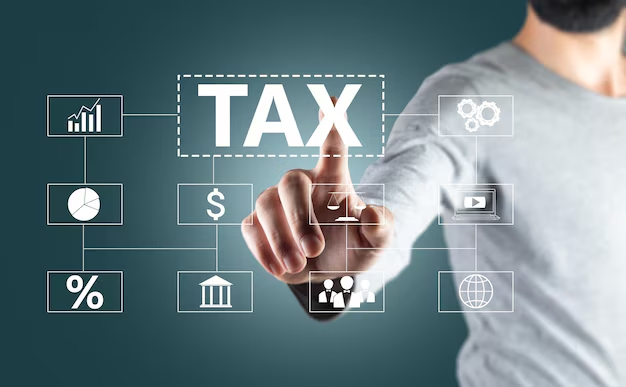E-Taxation refers to the process of filing, paying, and managing taxes online using digital platforms provided by the government. It includes Income Tax, Goods and Services Tax (GST), TDS, and other direct/indirect taxes through official e-governance portals.
E-Taxation uses technology to simplify tax compliance, reduce paperwork, improve transparency, and ensure faster processing.
Key Components of E-Taxation in India
- Income Tax E-Filing Portal
For filing individual and corporate income tax returns online (https://incometax.gov.in). - GST Portal
For GST registration, return filing, payments, and compliance (https://www.gst.gov.in). - TDS/TCS Portals
For deduction, payment, and reporting of Tax Deducted/Collected at Source. - Digital Payment Gateways
Allow taxpayers to pay taxes using net banking, UPI, credit/debit cards. - PAN & Aadhaar Integration
Ensures secure and authenticated tax filings.
Process of E-Taxation
- Registration
- Taxpayers register on the relevant government tax portal.
- Filing Returns
- Individuals and businesses fill prescribed forms (ITR/GSTR) online.
- Digital Verification
- Returns can be verified via Aadhaar OTP, DSC (Digital Signature Certificate), or bank login.
- Online Payment
- Taxes due can be paid through online modes.
- Assessment & Refund
- Returns are processed digitally; refunds, if any, are issued directly to the bank account.
Benefits of E-Taxation
- Convenience: Can be done 24/7 from any location.
- Transparency: Reduces scope for corruption and human error.
- Faster Processing: Automates return validation, assessment, and refund.
- Digital Records: All filings are stored securely for future reference.
- Cost-effective: Reduces dependency on physical paperwork and agents.
Challenges in E-Taxation
- Digital Literacy Gap: Many individuals and small businesses are unfamiliar with online processes.
- System Glitches: Government portals may crash during peak times.
- Cybersecurity Risks: Risk of hacking, data leaks, or phishing scams.
- Complex Rules: Tax laws are still complex; many need expert help even online.
- Compliance Burden: Regular updates and audits can be overwhelming for small businesses.
Legal Backing
- The Information Technology Act, 2000 provides legal recognition for electronic filing, digital signatures, and digital evidence.
- Finance Acts and Income Tax Act, 1961, along with GST Acts, govern the implementation of e-taxation in India.




